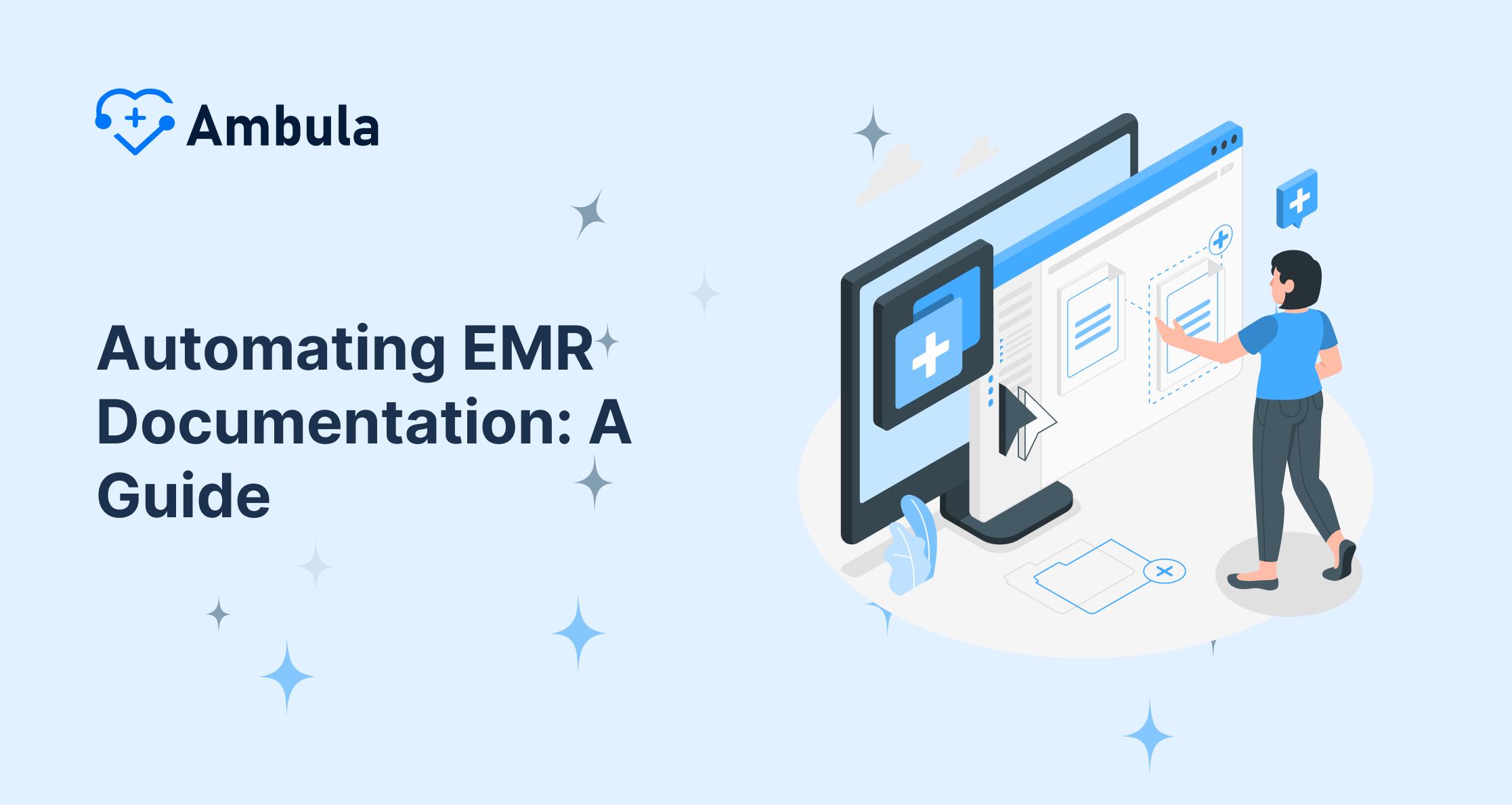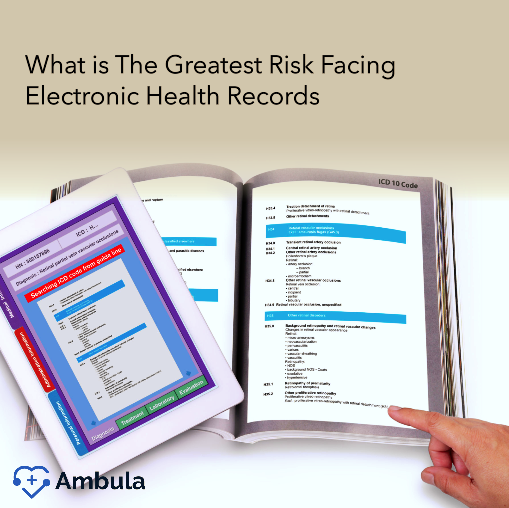Topics
- Benefits of the EMR mandate
- The Legal Landscape of EMRs
- Why are some practitioners avoiding EMRs?
- The reason why should ASCs get EMRs?
- Why are ASCs driven towards EMRs?
- How do you choose the best EMRs?
Essentially, is emr required by law? You already know that EMRs or electronic medical records are the answer to healthcare management. Of course, this applies to a patient’s treatment and medical history. However, they come with special security issues. Consequently, the federal government’s EMR mandate creates solutions.
It presents guidelines on the healthcare system regarding the management, creation, and security of patient documents. By definition, the EMR mandate is a bill Congress passed to demand conversion from paperwork to electronic systems. Accordingly, if a facility wants to continuously receive its actual Medicare reimbursement levels, it must follow the mandate’s guidelines.
Benefits of the EMR mandate
The benefits of the EMR mandate and its reason for creation are helping the healthcare industry achieve important standards, which makes the question more required by law than valid. The application of meaningful use of electronic medical records EMR is essential for these purposes:
Assist in improving efficiency, safety, and quality of patient care and reducing health disparities to the minimum.
A decrease in mortality and morbidity happened with the ease of illness diagnosis and accurate tracking of progress.
Privacy and security of patient information or health history are accomplished with maintenance. The mandate provides zero compromises to patients’ privacy.
Ensuring that improvement in population, public health, and care coordination is there. EMR combines information technology and healthcare to boost patients’ health. Healthcare professionals who are knowledgeable and skillful in mastering it are in high demand within the sector.
The Legal Landscape of EMRs
The legal landscape of electronic medical records (EMRs) is complex and ever-evolving. In the United States, the Health Information Technology for Economic and Clinical Health (HITECH) Act of 2009 played a major role in promoting the adoption of EMRs by healthcare providers. The HITECH Act provided incentives for providers to adopt EMRs and established a program of meaningful use requirements, which specified how EMRs should be used in order to promote better patient care and outcomes.
The 21st Century Cures Act, passed in 2016, made some changes to the HITECH Act’s EMR mandate. The Cures Act shifted the focus from penalties to incentives for meaningful use and made it easier for providers to qualify for exemptions from the mandate. The Cures Act also included provisions to promote interoperability among EMR systems, making it easier for providers to share patient data electronically.
Despite the changes made by the Cures Act, there are still some legal requirements for EMR use in the United States. For example, providers who participate in Medicare or Medicaid must use certified EMRs. Additionally, many states have their laws and regulations governing EMR use.
The legal landscape of EMRs is complex and constantly evolving. Healthcare providers should stay up-to-date on the latest legal requirements to ensure compliance.
Key Points
- The HITECH Act of 2009 played a major role in promoting the adoption of EMRs by healthcare providers in the United States.
- The HITECH Act established a program of meaningful use requirements, which specified how EMRs should be used to promote better patient care and outcomes.
- The 21st Century Cures Act passed in 2016, changed the HITECH Act’s EMR mandate, shifting the focus from penalties to incentives for meaningful use.
- The Cures Act also included provisions to promote interoperability among EMR systems, making it easier for providers to share patient data electronically.
- Healthcare providers should stay up-to-date on the latest legal requirements for EMR use to ensure compliance.
Exceptions to the EMR Mandate
While the HITECH Act and other laws and regulations have encouraged the widespread adoption of electronic medical records (EMRs) in healthcare, there are some exceptions to the EMR mandate. These exceptions are designed to relieve healthcare providers facing challenges in implementing or using EMRs.
Who is eligible for exceptions?
Several factors may make a healthcare provider eligible for an exception to the EMR mandate. These factors include:
- Size of the practice: Small healthcare practices with fewer than 15 physicians are generally exempt from the EMR mandate.
- Location of the practice: Healthcare practices in rural or underserved areas may be eligible for exemptions, as access to technology and resources may be limited.
- Financial hardship: Healthcare providers experiencing financial hardship may be eligible for an exception, as the cost of implementing and maintaining EMR systems can be significant.
- Type of practice: Certain healthcare practices, such as those that provide only mental health or substance abuse services, may be exempt from the EMR mandate.
How to apply for an exception
The process for applying for an exception to the EMR mandate varies depending on the state or jurisdiction. However, the process generally involves applying to the appropriate government agency. The application should include information about the practice, such as its size, location, and type of services provided. The application should also explain why the practice believes it should be exempt from the EMR mandate.
What to expect after applying for an exception
Once a healthcare provider has applied an exception to the EMR mandate, the government agency will review the application and make a decision. If the application is approved, the provider will be granted an exception and will not be required to use EMRs. However, if the application is denied, the provider must use EMRs to comply with the law.
It is important to note that the exceptions to the EMR mandate are not automatic. Healthcare providers who believe they may be eligible for an exception should carefully review the requirements and apply for an exception if they meet the criteria.
Key Points
- There are several exceptions to the EMR mandate, designed to provide relief for healthcare providers who may face challenges in implementing or using EMRs.
- Factors that may make a healthcare provider eligible for an exception include the size of the practice, location, financial hardship, and the type of practice.
- The process for applying for an exception to the EMR mandate varies depending on the state or jurisdiction.
- It is important to note that the exceptions to the EMR mandate are not automatic. Healthcare providers who believe they may be eligible for an exception should carefully review the requirements and apply for an exception if they meet the criteria.
In addition to the factors listed above, the government may consider other factors when deciding whether or not to grant an exception to the EMR mandate. These factors may include the provider’s history of compliance with other healthcare laws and regulations, the provider’s plans for implementing EMRs, and the potential impact of denying the exception on patient care.
Healthcare providers considering applying for an exception to the EMR mandate should consult with an attorney to discuss their options. An attorney can help providers understand the requirements for obtaining an exception and can assist them in preparing an application.
Why are some practitioners avoiding EMRs?
With all these benefits, why are some practitioners avoiding EMRs? Even if the answer to what is required by law is yes, the truth is, for ambulatory surgery centers, it’s simply not mandatory.
However, some doctors are hesitant about implementing EMRs. In times when everyone is using technology, some practitioners still haven’t implemented EMRs yet. These are small facilities with minimal technical support.
Also, some think that it could be overwhelming to switch to EMRs. Maybe it is the fear of change in workflows or the plan to retire soon. Moreover, several doctors just aren’t comfortable around technology-based systems. Others think they might reduce their number of patients during the transition. Nevertheless, solutions exist within EMR software to multiply patients’ numbers, increase efficiency and enhance workflows with simple implementation.
Check out these articles after you’re done
Why should ASCs get EMRs?
Moving on, why should ASCs get EMRs? Initially, ASC’s EMRs differ from those in normal clinics and hospitals. Despite that, the common aim is to make EMRs interoperable. Additionally, there are several reasons for ASCs to engage with EMRs.
1- ASC’s EMR is one-of-a-kind: the systems are not as comprehensive since the operations performed are limited. For example, steps such as treatment and diagnosis are unnecessary for ASCs. Consequently, ASC’s EMRs pursue the process before surgery and after it. Undoubtedly, this makes sure compliance and safety requirements are in place.
2- There is no incentive payment for ASC’s EMRs: facilities implementing EMRs can obtain federal funding for installation. Nevertheless, ASCs don’t know their size. But this might change with the need for ASCs to go with the flow to compete.
3- Scarcity of true EMR systems in ASCs: some systems may be mistaken for EMR systems being electronic and using PDFs. These don’t offer the same aspects EMR does and should be replaced for more efficiency to obtain interoperability.
Why are ASCs driven towards EMRs?
Reasons, why ASCs are driven towards EMRs, include the following:
1- Enhancement of quality outcomes and patient safety
2- Better profitability
3- Cost reduction
4- Efficiency and improvement
5- Staff and physicians’ satisfaction
6- Guaranteed compliance
7- Less risk
How do you choose the best EMRs?
Considering how you choose the best EMR is very important before you purchase and implement EMR. You’re making a decision that will last and take time to implement. You must research and opt for the best EMR that suits your established practice.
1- Compose a list of requirements
2- Make an analysis for your budget
3- Consider only specialty-specific EMRs
4- Choose the best system architecture for you
5- Validate the certification of the EMR system
6- Ask other doctors about their experience
7- Take a decision related to the needed support
8- Get a lawyer to go over the purchase agreement
9- Plan sufficient time to install the EMR system
Finally, whether mandatory or not, institutions are rushing toward EMRs. To compete with the best, implementation is a must. Undoubtedly, the best way to go is the easiest most efficient, and most customized way. That is why we encourage you to look at Ambula’s user-friendly software.
We’re here at your disposal! If you need to learn more about this subject, contact the Ambula healthcare team: at (818) 308-4108. And now, check out How to operate an EMR system








